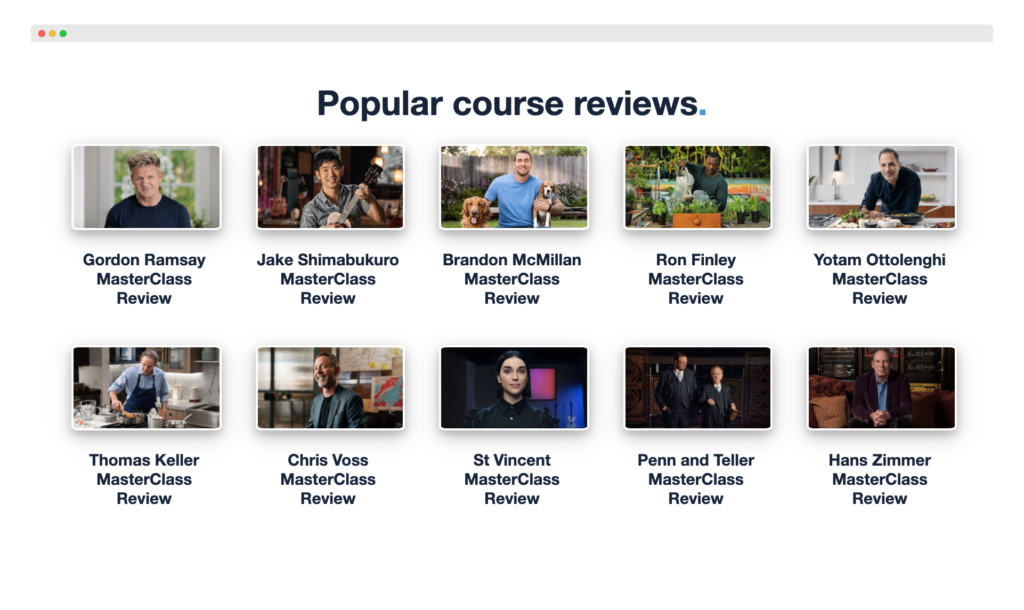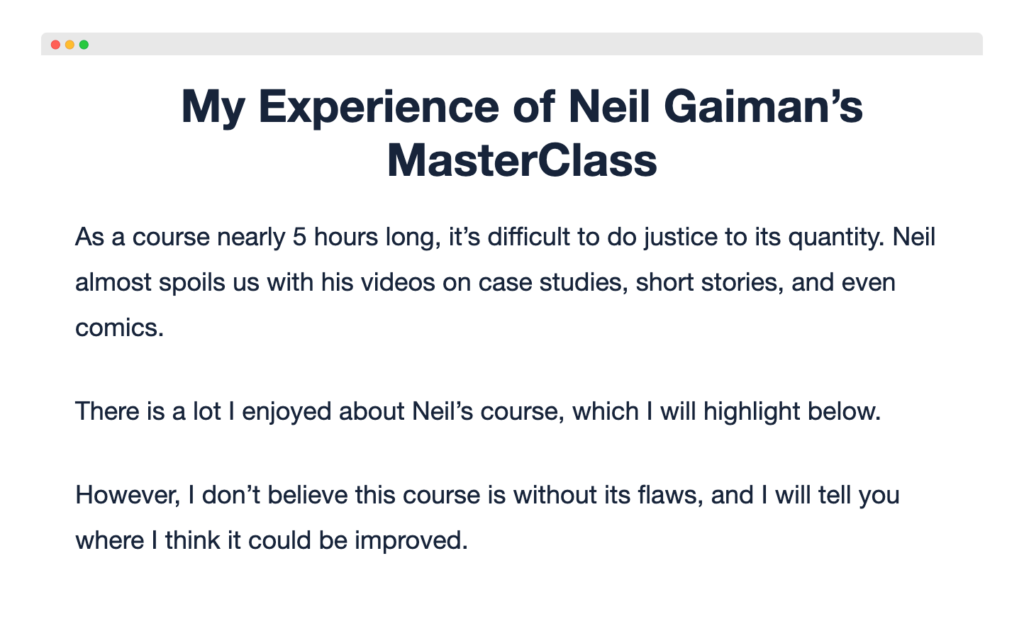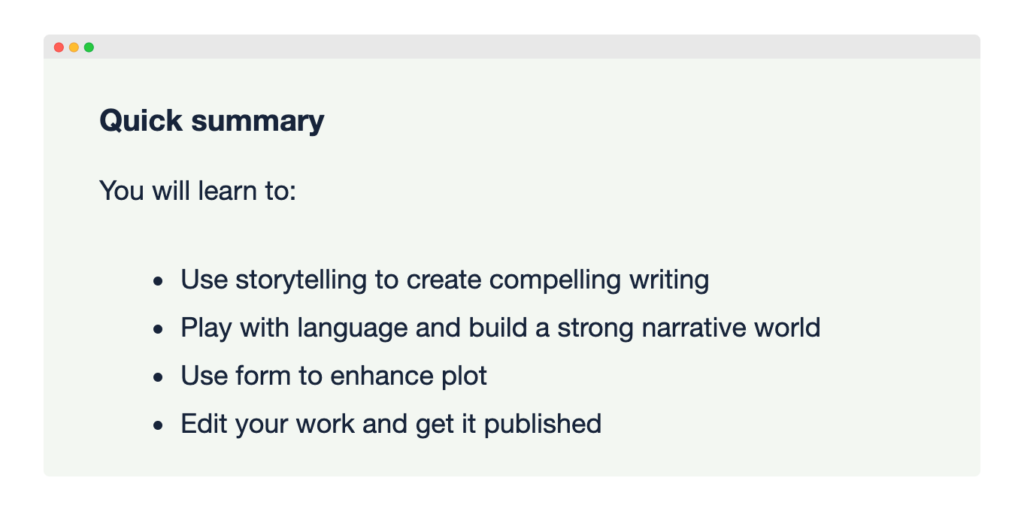Welcome to this edition of our interview series, where we explore tools to better explore and manage our knowledge. We talked to Finn Patraic, the founder of Learnopoly, a platform on a mission to provide unbiased reviews for popular online courses. Since launch, the team has spent more than 400 hours reviewing courses.
Finn has built several online businesses and has a deep passion for learning. The disappointment he felt when reading a heavily biased review of an online course he was considering inspired him to start Learnopoly.
In this interview, we talked about the key factors to consider when choosing an online course, how course creators can provide a better learning experience, how to avoid bias and maintain editorial integrity when building a reviewing platform, and much more. Enjoy the read!
Hi Finn, thank you so much for agreeing to this interview. To start with, can you share the origin story of Learnopoly?
Hi Anne-Laure, thanks for having me. To set the scene, it was the start of 2020, just before the world shut down. I had decided to start building a small real estate portfolio. The problem? I knew nothing when it came to real estate investing. So I did what a lot of people would do: I looked for an online course. But that in itself was challenging. There were so many to choose from. And they were generally quite expensive. In addition, I knew that choosing the wrong course could cost me even more, not only in money, but also in time and effort.
So I naturally went looking for reviews of my top choices — and what I saw was disappointing… Biased reviews that read like sales pages, written by people who didn’t seem to have any background in real estate investing, and who seemingly had not even taken the course.
I get it: most of these sites are just out there to make a quick buck through affiliate commision. There are sites like these in every industry. But surely education deserves more?
That’s why we are building Learnopoly. Our aim is to help our readers find, research, and select the right online course for their needs, desires, and budget. Learnopoly reviews are written by people with expertise or a deep interest in the subject; by someone who has actually taken the course; and by someone who will share their honest thoughts on its strengths and weaknesses. We are shooting for a hybrid between the Michelin star guide and the NerdWallet of the e-learning world.
Such an unbiased platform is much needed. The human factor will play a big role in your success. Can you tell us a bit more about the team behind Learnopoly?
Indeed, our team is the most important part of the business and is what truly sets us apart from other review sites. We have a polyglot fluent in five languages who reviews language courses; a professionally trained musician who reviews music courses; a master’s sport science student who reviews sports courses. In short, it is safe to say Learnopoly writers know what they are talking about!
In total there is me and a team of eight freelancers, but we are growing fast. The approach has been to mainly hire directly from universities, focusing on skills, interests and writing abilities. We are hopefully providing good value. We pay people to take and review courses in topics they are interested in, they get free access to the best courses out there, and it’s great work experience.
That sounds like a win-win collaboration. Talking about the courses, how do you select which courses to cover and how do you do your reviews?
We review the most popular online courses, using search volume as a proxy for demand. Then, we match courses with writers based on their backgrounds and interests. This often means hiring new writers to deep dive on a particular category.
One of the most unique things about Learnopoly is that our writers don’t simply take the courses, they implement the lessons learned and document that experience as well. Usually, they complete courses from start to finish. Where this is impractical — for instance for very long courses or nanodegrees — we work with writers individually to determine how much needs to be completed for them to offer a full and frank opinion.
Crucially, we are always transparent in explaining how we reviewed the course. Even more importantly, we are honest with our opinions. That means not being afraid to call out a course’s shortcomings even while celebrating its strengths.
Still, it can be hard to give unbiased feedback. How does the team make sure the reviews are as objective as possible and what’s the business model?
We are monetised through affiliate commission, which means we get paid when someone purchases through a link on our site. The key thing, however, is that this doesn’t influence our evaluations. It does influence what we write about — for example, we would review one course before another if only one had an affiliate program — or how much promotion we would do.
But it doesn’t affect the outcome of a review. One course will never receive a more favorable review than another because it pays more in commission. And we would not accept payment from a course provider to change what we said about them.
There’s a few other controls we have in place. First, to maintain editorial integrity, writers aren’t aware of the commercial relationships we have, so this doesn’t influence their reviews. Second, writers are briefed to think about and note down what can be improved about a course. Finally, part of our review process uniquely involves researching “what other people have said” about the course, including forums like Reddit. This ensures we take different perspectives into consideration.
The guidance we provide our writers is to be honest and optimistic. No course is perfect, but if the reader knows the downsides in advance then they can either decide it’s not for them or go into it with the right expectations.
You have put a lot of thought into the best ways to review online courses. What advice would you give to someone considering purchasing one?
The online learning space has become extremely crowded and it’s challenging to know which courses are worth taking. Here’s some points to think through when next evaluating a course:
- Instructor’s experience. If you are going to invest time and money, you want to be sure of the instructor’s skill level and competence. Have they got a proven track record of delivering and coaching top performance?
- Syllabus. Will the course teach you the desired skills? Are you looking for something with a broad or niche focus? In short, make sure what’s on offer is what you’re looking for.
- Alternatives and uniqueness. It’s unlikely that the first course you come across will be the best. It pays to do your research and consider what other courses are out there and if this one brings anything unique to the mix.
- Price. Online learning is often expensive and it’s important to consider the value you are getting. If one course is twice the price of another — and still within budget — but the teacher has ten times more experience, this is a factor you should take into account. Plus, you should consider the value of what you are learning: most skills are lifelong and you reap the rewards by learning early.
And, of course, you will want to get the views of people who have taken the course! We factor all of the above points (and more) into our reviews to provide a one-stop shop to help you decide if it’s the right course for you.
Looking at the other side of the table, what are some things course creators can do to make a great course?
Having completed and reviewed over eighty courses, you begin to see common themes emerge on what makes a great course. There’s no silver bullet, but here are some things to think about:
- Design for a specific audience. There is an age-old problem in education: do you teach for the top, middle or bottom? It’s common to see courses aimed at the most people possible to maximise revenue, but this often results in a course which will harm you in the long run. The best courses are designed with a specific audience in mind. By fully focusing on one group, you can optimise for learner outcomes, create a better experience for your students, and avoid scope creep for yourself.
- Focus on delivery. Mix between one-to-one style teaching, over the shoulder tutorials and workshops that offer feedback and improve real students’ efforts. Ultimately this will help your message land and keep the learner interested.
- Balance theory and practice. The high level overview and step-by-step details are crucial. Make sure your course focuses on the what, how and why. A good check here is to introduce topics from a bird’s eye view, and then make sure to finish with concrete examples.
- Give your students assignments. A common pitfall of online learning is lack of engagement. You can counteract this while achieving the best outcome for your students by bringing in tasks, projects and exercises to help them learn. Remember this is not homework and it should not feel like it. Teaching someone to code? Don’t give them a multiple choice quiz to check understanding. Have them build an app with you as they complete the course with exercises that progressively get more advanced as the app takes shape.
- Community. The other challenge of online learning is isolation. Not every course needs a community and building one is a lot of work. But an active community does pay dividends. Whenever we log in to a course and see a ton of students engaging with the content it encourages us to do the same and overall the experience is a lot more enjoyable.
And a bonus quick fire tip: when creating your sales page, head on over to Udemy for inspiration. Filter for the most popular courses on categories similar to yours and note how they describe their course and what students are expected to learn. Top courses on Udemy do a great job of articulating their value.
Talking about value… The value you deliver to prospective students is crystal clear. What course providers?
Ultimately we are providing discovery and validation — of course, provided it’s a good course! Our approach to reviews builds trust with our readers which leads to high conversion and low refund rates.
But more than that, there is an element of brand alignment. If you are a creator and you have put your blood, sweat and tears into educating your audience, you would hope that your reviewer would reciprocate some of that effort by fully engaging with the content and offering honest, analytical insight on your output.
Online education is pretty crowded and there are lots of platforms to search for reviews. How do you deal with competition?
We don’t focus on the competition too much and instead concentrate our efforts on delivering the best content out there. One thing that we have found is that editorial integrity can be a source of competitive advantage.
Existing review sites would struggle to switch to an integrity-based approach due to poor legacy content. And new sites can get it right from the start but, as we have found, it’s hard to scale this approach. So it really pays to do the right thing.
That makes sense. What’s next for Learnopoly?
We are focused on scaling what we have so that we can cover every major course and help as many people on their learning journey as possible. It’s not an easy task given the breadth of things you can learn online and the fact that we’re spending the time to complete the courses and implement what we learn.
And as we continue to complete reviews we are aggregating and ranking courses on particular topics and providers (such as the best MasterClass) to provide ultimate guides. Besides that, we are starting an email newsletter where we will share the top courses for particular subjects as well as exclusive deals and discounts from top providers.
And who knows… In the future we may even create some courses ourselves. They will be on meta topics, like learning how to learn. After all, it’s pretty much all we do!
Thank you so much for your time, Finn! Where can people learn more about Learnopoly?
Find us at Learnopoly and on Twitter. If you are looking for a course review and you see us in the search results feel free to come and say hello. We are also open to feedback and partnership opportunities, so don’t be afraid to reach out!



